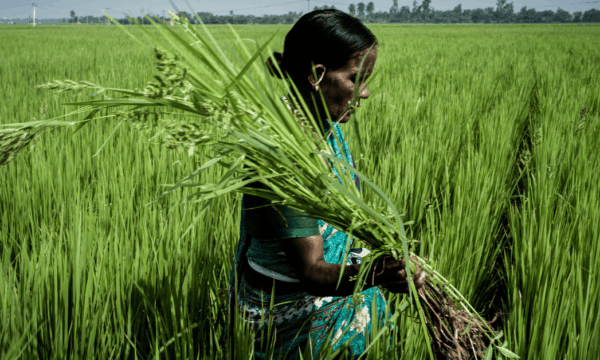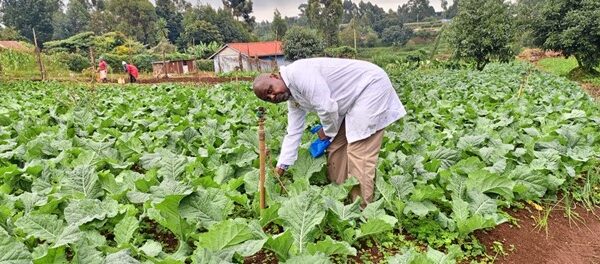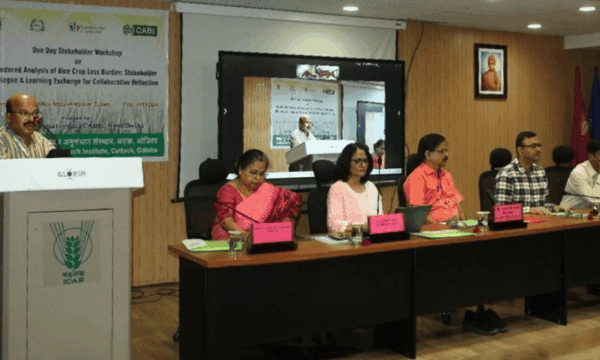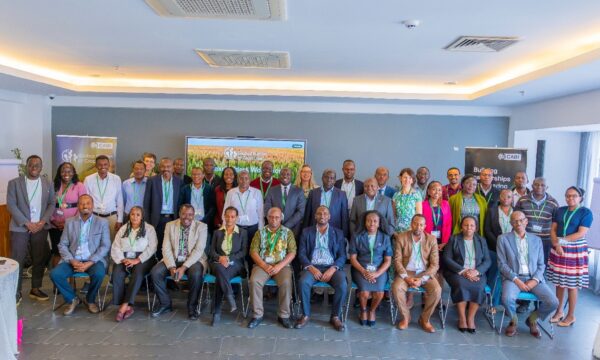
A stakeholder inception workshop recently hosted by CABI in Nairobi, Kenya, has explored how men, women, and youth are differently affected by maize crop loss, one of the most persistent challenges facing smallholder farmers across the country and beyond.
In Kenya, maize is both a staple food and a vital economic crop. Every loss translates into millions in lost income for farmers, widens nutrition gaps for families, and undermines national food security. Men, women, and youth face and adapt to crop loss in distinct ways, shaped by their roles, responsibilities, and access to resources.
Against this backdrop, CABI brought together technical representatives from Bungoma, Makueni, Nakuru, and Trans Nzoia Counties to discuss how gender and age influence farmers’ experiences, coping mechanisms, and resilience to maize crop loss, while strengthening collaboration among stakeholders. The workshop held in Nairobi, Kenya was organised as part of the Global Burden of Crop Loss (GBCL) initiative.
Led by CABI and supported by UK International Development and Gates Foundation, GBCL seeks to quantify the scale and impact of crop loss, both biotic and abiotic, drawing inspiration from the Global Burden of Disease model. Data on losses in key crops such as maize, wheat, rice, cassava, banana, and cowpea will help governments, researchers, and development partners make evidence-based decisions to boost yields, improve farmer incomes, and strengthen resilience to climate change.
In Africa, Ethiopia and Kenya are among the first countries participating in the GBCL initiative, with the Kenyan study focusing specifically on maize.

Speaking during the inception workshop, Dr Monica Kansiime, CABI’s Deputy Director – Development and Outreach, Africa, highlighted the importance of inclusive research and stakeholder engagement.
“Our goal is to ensure that farmers and key stakeholders are engaged from the very beginning, validating our approach and shaping a clear roadmap for data collection, learning, and action,” she said.
“Partnerships are therefore the foundation for delivering impact that truly transforms smallholder livelihoods. This inception meeting reflects that commitment of bringing diverse stakeholders together to co-create solutions that are inclusive, evidence-based, and sustainable, and to ensure the voices of men, women, and young people are heard throughout the process.”
Setting the stage for a gender-focused study
Mr Henry Mibei, CABI’s Manager – Digital Development, Africa and a core member of the Global Burden of Crop Loss (GBCL) project team, noted that the workshop laid the foundation for a gender-focused study to be conducted across four counties in Kenya. The study will employ household surveys, key informant interviews, and focus group discussions to capture diverse perspectives and experiences.
“This workshop marks an important step toward a shared understanding of crop loss,” said Mr Mibei. “Our next phase will involve on-the-ground data collection in collaboration with county teams. Inclusive research makes our solutions stronger and more sustainable.”

Participants at the workshop identified and selected study sites that reflect diversity in farming systems, gender representation, and socio-economic dynamics across the four counties. This approach ensures that data collection captures the varied realities of maize farming in different contexts.
They also shared valuable insights on the impacts of maize crop loss, highlighting its ripple effects on livelihoods, food security, nutrition, education, migration, and health as well as the coping strategies employed by men, women, and youth. These discussions enriched the study design and strengthened collective understanding of the social and economic dimensions of maize crop loss.
Toward evidence-based systems to tackle food security
Mr Benson Masinde, Assistant Director of Agriculture in Bungoma County, observed that, “Many farmers are forced to sell their produce below market value to avoid spoilage or post-harvest losses, which translates into significant economic setbacks. Managing post-harvest losses in maize is therefore crucial in reducing overall yield loss.”
He added that, “The study by CABI is significant, as its findings will help policymakers and other stakeholders make informed decisions to improve maize production in the country. It is also essential to include access to markets as a key variable, since limited or unreliable markets often compel farmers to sell early or at lower prices, amplifying the overall burden of crop loss beyond yield reduction.”
The workshop, which also included participation from CABI staff Stacey Odunga, Linda Likoko, Deogratius Magero, Kavita Mishra, and Fredrick Mbugua, sets the stage for the upcoming gender-focused study, which will generate insights feeding into the Global Burden of Crop Loss (GBCL) modelling work. The results will contribute to more accurate and representative estimates of maize crop loss, while deepening understanding of how these losses affect men, women, and youth differently.
Additional information
Main image: Workshop participants gathered in Nairobi, Kenya organized by the Global Burden of Crop Loss (GBCL) initiative.
Relevant news and stories:
Equipping decision-makers with evidence to tackle global crop loss
Every kilogram counts: Tackling crop loss in Kenya and Ethiopia with data-driven action
The Global Burden of Crop Loss: Evidence-based systems to tackle food security
Related News & Blogs
Partnering to improve crop loss data for Odisha’s rice farmers
CABI and CRRI are partnering to strengthen crop loss data in Odisha’s rice systems. Through workshops and stakeholder engagement, the initiative aims to generate robust evidence to support farmers, inform policy, and build resilient, data-driven approaches to reduce crop losses.
3 December 2025





